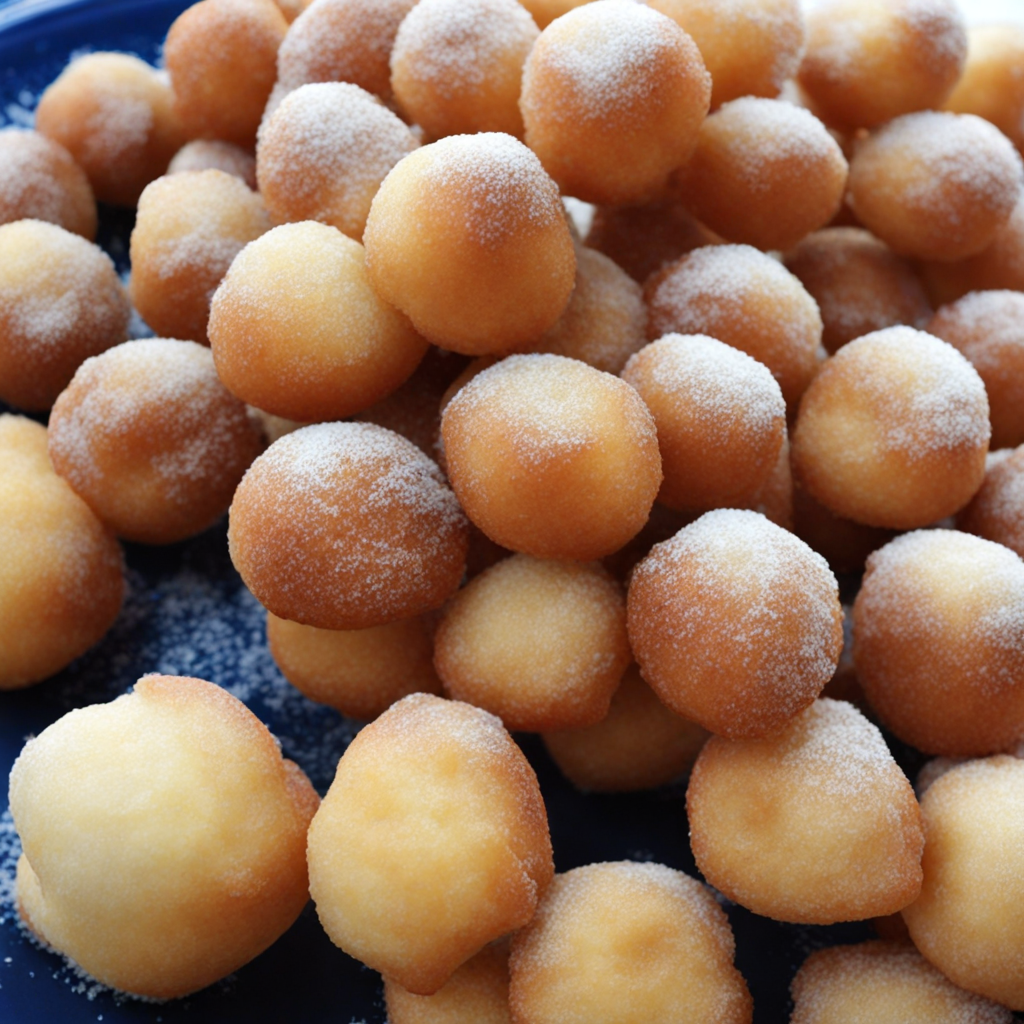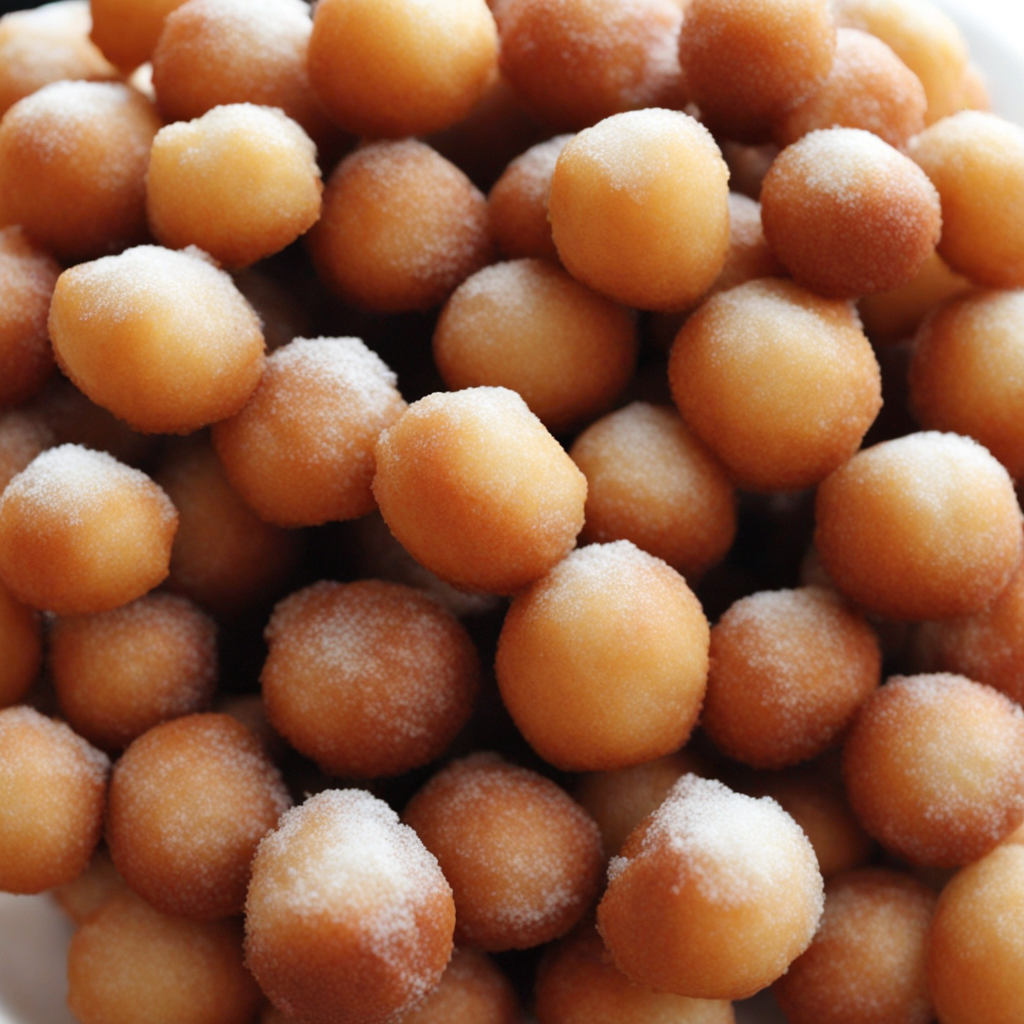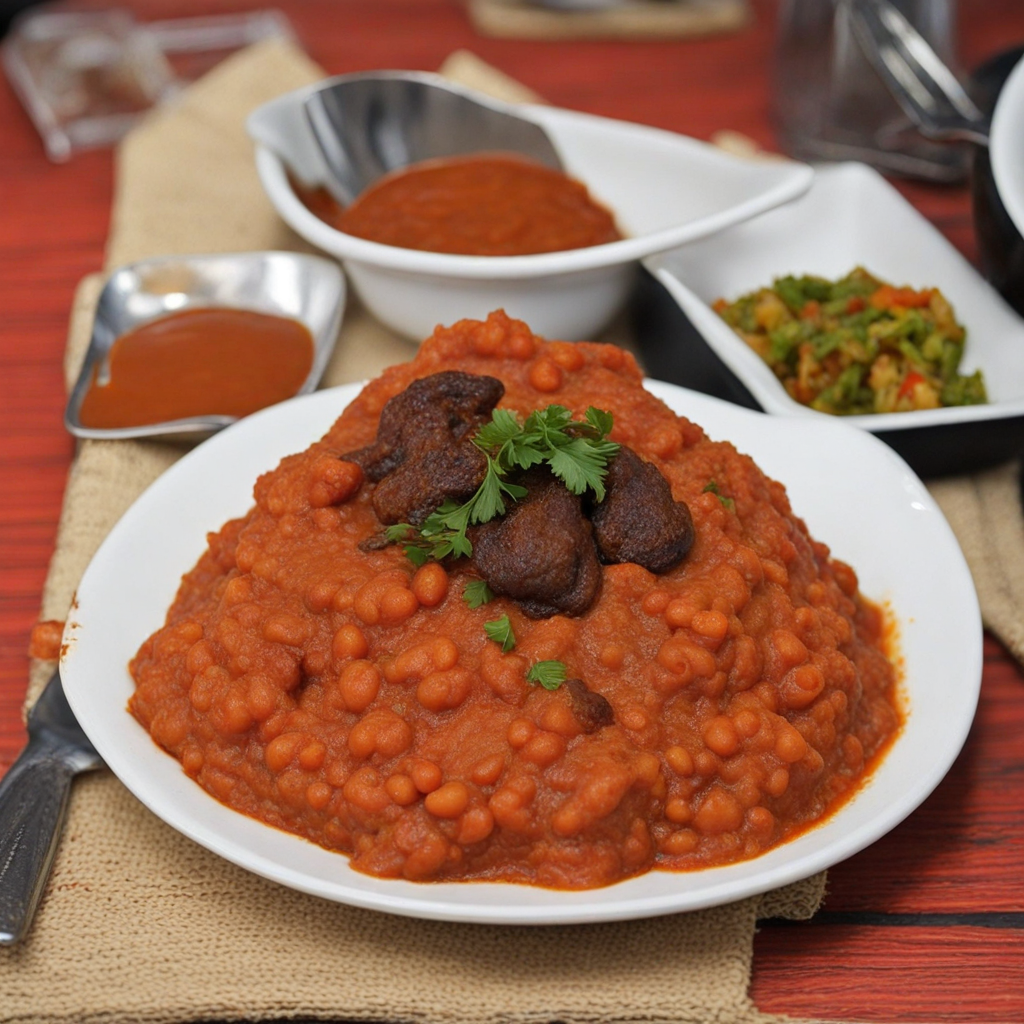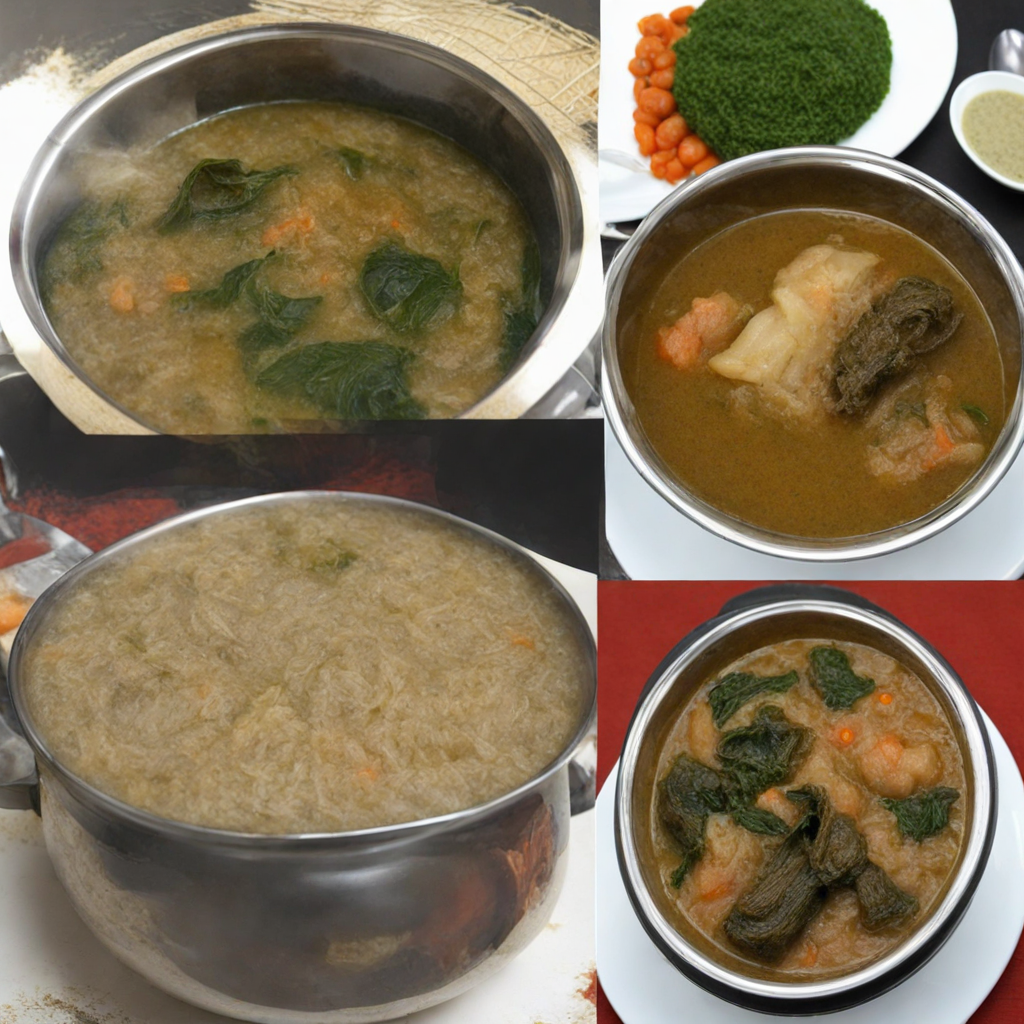Puff Puff
Puff Puff is a delightful Nigerian snack that captures the essence of West African street food. These small, round balls are made from a simple batter of flour, sugar, yeast, and water, which is left to rise until it becomes fluffy and light. The dough is then shaped into balls and deep-fried until golden brown, resulting in a crispy exterior that gives way to a soft, airy interior. The preparation of Puff Puff is often accompanied by the intoxicating aroma of frying dough, making it nearly impossible to resist these treats when they are fresh and warm from the fryer. The flavor profile of Puff Puff is subtly sweet, with a hint of yeastiness that comes from the fermentation process. While the traditional version is enjoyed as is, variations abound; some cooks add spices like nutmeg or cinnamon for a warm undertone, while others incorporate ingredients like chocolate or fruit to create a twist on the classic treat. Puff Puff is commonly enjoyed as a snack, dessert, or at celebrations, where they are often served alongside other Nigerian delicacies. In addition to their irresistible taste and texture, Puff Puff is also a versatile food that can be enjoyed on various occasions. Whether served as a casual snack during a gathering or as part of a festive meal, these fluffy bites bring people together through their comfort and joy. The communal experience of sharing Puff Puff contributes to their popularity, making them a must-try for anyone looking to explore the rich culinary landscape of Nigeria.
How It Became This Dish
The History of Puff Puff: A Nigerian Delight Puff Puff is a beloved snack in Nigeria, renowned for its fluffy, airy texture and slightly sweet flavor. This delectable treat has transcended mere sustenance to become a cultural phenomenon, embodying the rich tapestry of Nigerian culinary traditions and social customs. To understand the significance of Puff Puff, we must explore its origins, cultural importance, and evolution over time. #### Origins: A Culinary Crossroads While Puff Puff is predominantly associated with Nigeria, its roots can be traced back to West African culinary practices, influenced by centuries of trade, migration, and cultural exchange. The dish is thought to have originated from a broader category of fried dough snacks that exist across various African cultures. Similar dishes can be found in other West African nations, such as Cameroon, Ghana, and Senegal, each with its unique twist. The name "Puff Puff" is believed to be derived from the sound that the dough makes as it puffs up while frying. The basic ingredients—flour, sugar, yeast, and water—are staples in many West African kitchens. The introduction of these ingredients into the region can be linked to the trade routes that flourished across the Sahara Desert, where merchants exchanged spices, grains, and culinary techniques. During the colonial period, the interaction between local populations and European settlers introduced new cooking methods and ingredients, further enriching the culinary landscape. However, Puff Puff remained a traditional food, often prepared for gatherings, celebrations, and communal events, reinforcing its role as a comfort food deeply embedded in Nigerian culture. #### Cultural Significance: More Than Just a Snack Puff Puff occupies a cherished space in Nigerian society. It is not merely a street food or a casual snack; it symbolizes community, hospitality, and celebration. In Nigeria, food is often an expression of love and togetherness, and Puff Puff is a quintessential offering at weddings, birthdays, and religious festivities. Its presence at these significant events underscores its role in fostering social bonds and creating memories. The preparation of Puff Puff is often a communal activity, bringing families and friends together. Traditionally, women would gather to mix the dough, share stories, and bond over the cooking process. This communal aspect not only strengthens relationships but also passes down culinary knowledge and cultural heritage from one generation to the next. The act of frying Puff Puff, with its bubbling transformation from dough to golden brown morsels, is a celebration in itself, marking the joys of togetherness. Moreover, Puff Puff transcends socio-economic boundaries. It is enjoyed by people from all walks of life. Street vendors selling Puff Puff often set up stalls in bustling markets, offering affordable snacks to passersby. This accessibility has made it a staple snack for many Nigerians, reinforcing its status as a food that unites rather than divides. #### Evolution Over Time: From Tradition to Innovation As Nigerian society continues to evolve, so too has Puff Puff. While the traditional recipe remains popular, innovative twists have emerged, infusing the classic dish with modern flavors and techniques. Chefs and home cooks alike have experimented with various ingredients, incorporating spices, fruits, and even savory fillings. For instance, some have introduced flavors like coconut, nutmeg, or vanilla, elevating the dish's profile. Others have opted for savory versions, incorporating ingredients like cheese, pepper, or vegetables. The rise of fusion cuisine has also given birth to unique interpretations of Puff Puff, which can now be found in gourmet restaurants and upscale events alongside traditional versions. In recent years, the global influence of social media has played a significant role in popularizing Puff Puff beyond Nigeria's borders. Food bloggers and influencers have shared visually appealing recipes and preparation methods, sparking interest among food enthusiasts worldwide. This newfound visibility has led to a resurgence of interest in Nigerian cuisine, with Puff Puff often serving as an entry point for those eager to explore West African flavors. Furthermore, the diaspora has kept the tradition alive, with Nigerians living abroad sharing Puff Puff at cultural events, potlucks, and family gatherings. This practice not only preserves the cultural significance of Puff Puff but also introduces it to new audiences, fostering appreciation for Nigerian culinary heritage. #### The Making of Puff Puff: A Culinary Art The preparation of Puff Puff is an art in itself. The process begins with mixing flour, sugar, yeast, and water to create a dough that is then left to rise. This fermentation process is crucial, as it contributes to the lightness and fluffiness of the final product. Once the dough has doubled in size, it is carefully scooped and fried in hot oil until golden brown. The result is a soft, airy ball with a slightly crispy exterior, often dusted with powdered sugar or served with dipping sauces. Serving Puff Puff is a ritual steeped in tradition. It is often accompanied by drinks such as zobo (a hibiscus tea) or palm wine, enhancing the sensory experience of enjoying this snack. Whether served at a bustling market or in a home kitchen, Puff Puff is more than just food; it is a symbol of hospitality and warmth. #### Conclusion: The Legacy of Puff Puff Puff Puff stands as a testament to the resilience and adaptability of Nigerian culinary traditions. Its journey from humble origins to a celebrated snack reflects the dynamic nature of food and culture. As Nigeria continues to navigate the complexities of modernity while honoring its rich heritage, Puff Puff remains a beloved staple. This iconic dish not only nourishes the body but also nourishes the soul, embodying the spirit of community, celebration, and love. Whether enjoyed in a bustling market or at a family gathering, Puff Puff is a delicious reminder of the connections that food fosters and the cultural narratives it carries. As culinary boundaries continue to blur and evolve, Puff Puff will undoubtedly remain a cherished symbol of Nigerian identity, celebrating the past while embracing the future.
You may like
Discover local flavors from Nigeria







